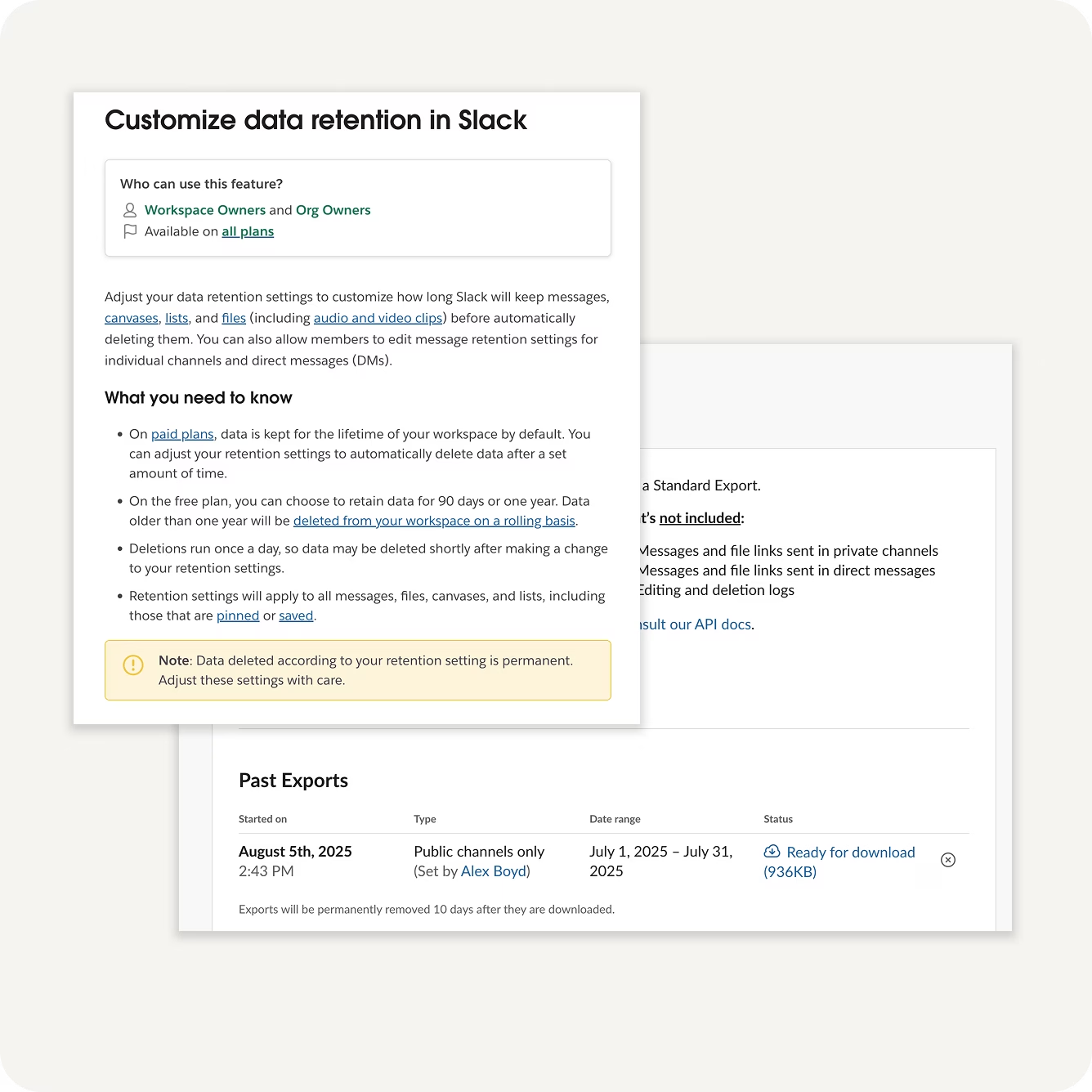Top 5 Slack eDiscovery Tools 2025
Comparison of several of the top Slack eDiscovery tools that help IT professionals working on eDiscovery produce Slack data from either JSON archives or the Slack API.
Setting up data governance and retention policies in Slack is good for both compliance and housekeeping, especially in regulated industries.


Companies rely on Slack every day to share information, make decisions, and keep projects moving. But as Slack becomes a central record of business activity, leaders need clear rules for how long messages and files should be kept, who can access them, and how exports are handled. This is where Slack governance and Slack data retention policies come in.
Below are answers to the most common questions about Slack data governance.
Yes. If your business is subject to industry or regional rules on how long records must be kept, those requirements usually extend to Slack conversations and files as well. Slack is often considered part of the corporate record, just like email. That means your company’s slack data retention policy should spell out how long messages, channels, and shared documents stay accessible before being removed.
“Slack data governance is about setting clear rules for how conversations and files are stored, accessed, and managed over time.”
Slack data governance refers to the rules your company sets for how conversations, files, and user activity in Slack are stored, accessed, and managed over time. It covers everything from Slack data retention policies to data loss prevention tools that reduce the risk of sensitive information leaving the company.
Slack holds a mix of casual chat, project files, and sensitive business details. That can include customer information, HR conversations, contracts, or financial notes. Without clear slack governance and safeguards like slack data loss prevention, the risks range from accidental sharing of private information, to retaining more data than regulations allow, to challenges producing records during legal discovery. Managing retention and access limits these risks while keeping work moving smoothly.
A Slack data retention policy allows admins to set how long messages and files are kept before being deleted. For example, you may decide that direct messages are removed after 90 days but project channels are retained for 1 year.
Retention can help reduce storage costs, limit risk in legal disputes, and keep records tidy.

Yes. Workspace Owners and Admins can download Slack data in different ways depending on the plan:

Slack data loss prevention helps ensure sensitive information (like customer data or financial records) doesn’t get shared outside approved channels.
Data governance in Slack usually involves collaboration between:
Good Slack governance doesn’t mean keeping everything forever—or deleting everything right away. It means choosing retention and export settings that match your company’s compliance needs, risk tolerance, and communication style. Setting a clear Slack data governance framework will help your team stay organized, compliant, and secure.